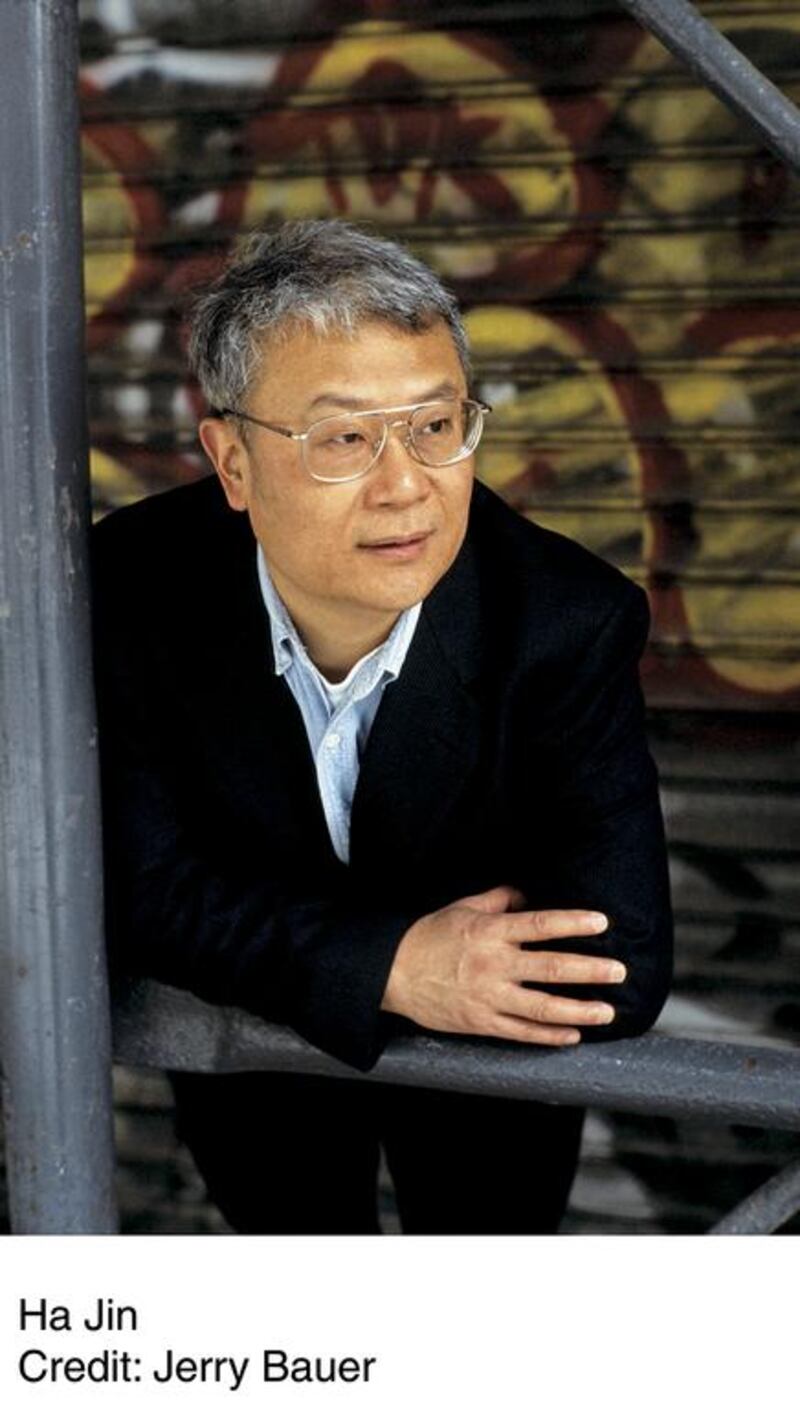Ha Jin left his native China in 1985 to study at Brandeis University in the United States. The son of a Red Army officer, after the Tiananmen Square Massacre of 1989 he decided to settle in the US for good and to write in English.
Armed with experience of both worlds, his novels and stories play out in either his motherland or his adopted homeland, whether provincial China or suburban America. The Crazed, from 2002 for example, considers if only the mentally ill can speak the truth in China. However, his most ambitious and arguably most successful books are those which straddle the two countries and explore their shared histories and conflicting cultures.
In A Free Life (2007), a Chinese family emigrates to the West to start anew; in A Map of Betrayal (2014), an American woman ventures East to uncover secrets about her father's past.
For his latest novel, The Boat Rocker, Jin's expatriate characters keep their feet on American soil but find themselves steered and intimidated by Chinese influence. His protagonist is Feng Danlin, a journalist who works for an independent news agency in New York which produces a website read by the Chinese diaspora around the world.
Danlin’s straight-talking columns and hard-hitting exposés have garnered loyal readers but also incurred the wrath of Communist officials.
His latest assignment involves a blast from his past. His hated ex-wife, Yan Haili, has written a novel which has been hyped out of proportion by the Chinese media. This “landmark novel” has supposedly been sold to a Hollywood studio for more than US$1 million (Dh 3,973,000) and will be endorsed by President W Bush and translated into more than 30 languages. Danlin reads it, dismisses it as both a shallow romance and an exploitative 9/11 melodrama and sets out to expose Haili as a hack and the project as a scam.
His investigations bring him into contact with an enterprising “troika”: a ruthless Chinese publisher, a shady editor and the author herself, who first informs Danlin that her novel is a “national project” sanctioned by the Chinese government and later threatens him. Undaunted, Danlin keeps poking around and writing up his findings, triggering a war of words.
After failing to silence him, his unseen enemy begins to apply pressure: his girlfriend’s Chinese visa application is rejected; his forthcoming book is cancelled, the already-printed copies pulped; he is blacklisted in China, his articles banned. Finally he is sued for money he doesn’t have. When Homeland Security intervene in a bid to preserve Chinese-American relations, his job and his sanity hang in the balance.
For the first couple of chapters, The Boat Rocker reads as though the plot will revolve around a failed marriage, as in Jin's National Book Award-winning breakthrough novel Waiting (1999). But as the publishing hoax takes shape, the narrative changes direction to incorporate mud-slinging and backstabbing, plus sharp commentaries on identity, freedom of speech and the power of the pen – and propaganda.
What blights the novel at unfortunate moments is patchy prose. It seems mean-spirited to take an author to task over his artistic rendering of a second language but Jin is prone to clunky or shopworn phrasings.Images are milked to death: “We must nip this in the bud” is answered with “It’s already blooming into an evil flower”, then capped with “We can still pluck it off.”
Scattershot maxims masquerade as flashes of wisdom: “When fighting with a pig, you’ll have to roll in mud”; “If you don’t get into a tiger’s den, how can you catch its cubs?” Characters are briskly summed up as “success personified” or “vendetta incarnate”.
All of which chips away at credibility and drains carefully accrued tension. Fortunately, though, there isn’t enough of it to mar the entire proceedings.
Jin’s conceit is intriguing, even ingenious, and he dazzles with every scene in which his reporter is confronted by hostile forces, from the passive-aggressive editor who switches from bribing to browbeating, to the official at the Chinese consulate who lectures Danlin about American hypocrisy then reminds him that the country that reared him still possesses the power to devalue him.
Jin’s fiction may lack the allegorical tricks and dark satire of that of his more heavyweight contemporary Yan Lianke, but his integrated broadsides and analyses have more than enough edge, heft and bite.
“China,” he writes, “the wayward dragon, has grown into an anomaly, an unprecedented combination of one-party oligarchy and rapacious capitalism.”
To play Jin at his own game, The Boat Rocker occasionally pitches and sways yet never comes close to sinking. Bracing and absorbing, at its heart lurks a chilling message: "Truth depends on how you shape and present it."
Malcolm Forbes is a freelance writer based in Edinburgh.





